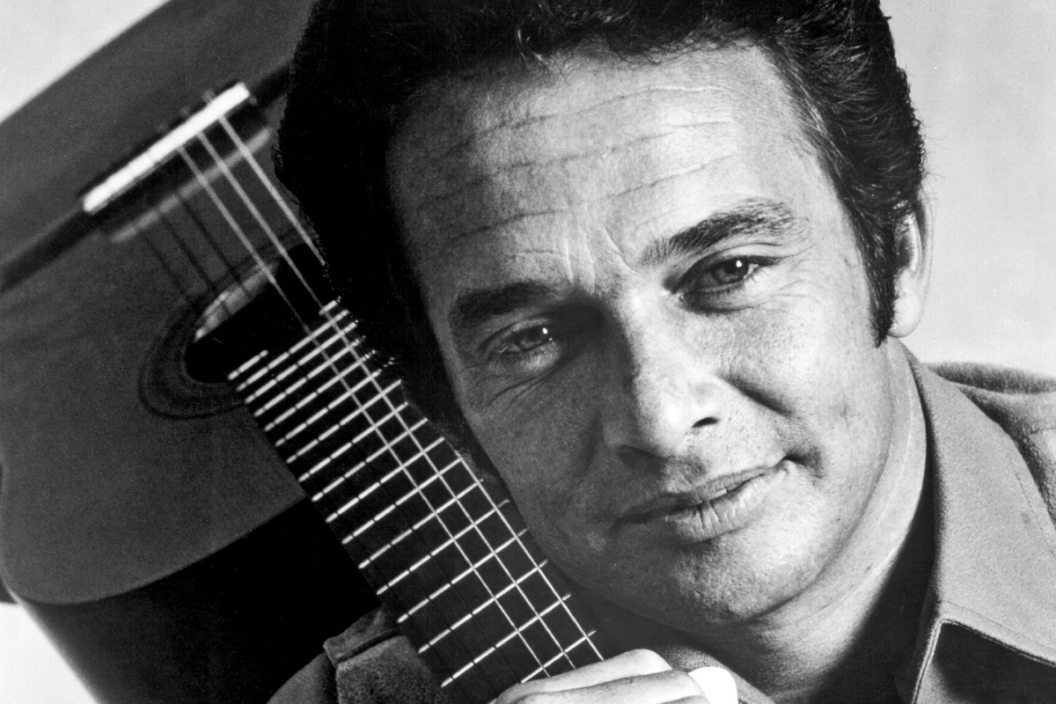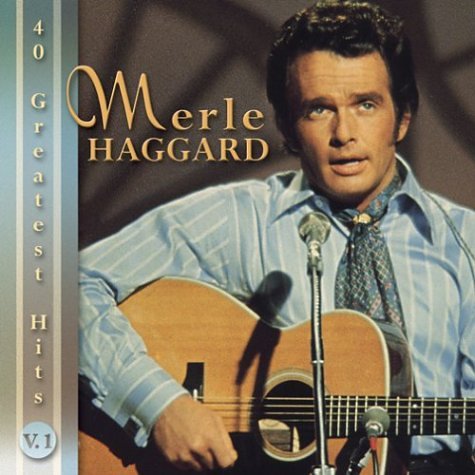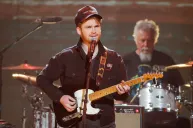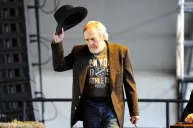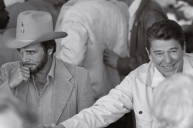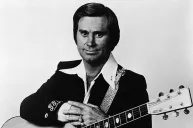Classic country music playlists seem incomplete without multiple Merle Haggard songs, and there are quite a few selections worth playing in between the Hanks of Nashville (Williams and Snow) and the Kings of Texas (Bob Wills and George Strait).
Videos by Wide Open Country
Haggard helped popularize the Bakersfield sound in his native California alongside another longtime Capitol recording artist, Buck Owens. The Hag's efforts to chase the sounds of Jimmie Rodgers, Lefty Frizzell, Hank Williams, George Jones and other influences, paired with the cultural imprint left by his biggest hit "Okie From Muskogee," eventually made him one of America's defining musical voices.
There's a reason greatest hits compilations require two or more discs when it comes to someone like Haggard. Even expanding this list from 10 to 15 leaves out some of his crowd-pleasers -- "The Fightin' Side of Me," "Sing Me Back Home," "That's the Way Love Goes" "The Fugitive" (AKA ""I'm a Lonesome Fugitive"), "Branded Man," "Misery and Gin," "The Legend of Bonnie and Clyde," "Today I Started Loving You Again," "My Favorite Memory," "Always Wanting You," and some great material from later in Haggard's career ("Kern River").
That said, if Haggard's sons Ben and Noel use these 15 songs as a setlist the next time they honor their father in a town near you, it'll make for an ideal tribute to an all-time great storyteller.
15. "Honky-Tonk Night Time Man"
Depending on tastes and reference points, this uptempo nod to the blues may excite listeners more because of Lynyrd Skynyrd's cover. Consider that a reminder of how Haggard and his Bakersfield peers' influence expanded beyond country music.
14. "Silver Wings"
Haggard updated the old, sorrowful tale of watching an ex-lover leave town, sending her off on an airplane instead of a train. An alternate title could be "I Wonder Why Planes Make Me Lonesome?"
13. "Leonard"
This moving story about a musician's mentor pays tribute to Tommy Collins, a fellow songwriter with Oklahoma ties. Collins, born Leonard Raymond Sipes, wrote "The Roots of My Raising," "Carolyn," and other songs recorded by Haggard.
12. "Pancho and Lefty" (With Willie Nelson)
Haggard and his old friend Willie Nelson furthered their image as modern-day drifters with this stellar interpretation of a Townes Van Zandt classic. Both legends proved to have the needed storytelling chops to expand the cultural reach of Van Zandt's masterpiece.
11. "Hungry Eyes"
Sometimes called "Mama's Hungry Eyes," this Haggard single was part autobiographical. His mother really did raise a family as a single parent, following the death of her husband when Merle was only 9 years old. The family didn't actually live in a labor camp, though. That part of the story pays tribute to Okies' struggles to survive the Great Depression.
10. "If We Make It Through December"
Factory lay-offs hit hard at any time of the year. Haggard considers a worker laid off around Christmas time, forcing him to dream of a better life for his young daughter after the new year. Think of it as the precursor of Jason Isbell's "Something More Than Free."
9. "Ramblin' Fever"
From hobos with no place to live to cowboys on the range, many great country songs celebrate the freedom of those not tied down to a regular 9-to-5 job. In this case, Haggard celebrates a musician's unquenchable need to live out of a van, guitar case and backpack.
8. "Are the Good Times Really Over (I Wish a Buck Was Still Silver)"
This tune about changes in our society revisits the type of sentimentality that made country music's earliest radio stars popular.
7. "Big City"
Country folks returning to the mountain from the city for clean air to breathe and wide open spaces to enjoy can definitely relate to Haggard's desire to ditch the bright lights for a simpler life.
6. "Swinging Doors"
Haggard modernized the stereotypical "Tear in My Beer" type of country song for the 1960s and beyond. Three songs, presented here in order, define his vision of a local bar and the sad, complicated patrons entering through those "Swinging Doors" every evening.
5. "The Bottle Let Me Down"
Sad songs about drinking to forget pop up throughout the Hag's catalog. Here he deals with memories so bitter and sorrow so great that a drunken night just makes things worse.
4. "I Think I'll Just Stay Here and Drink"
Haggard's most celebrated song of the 1980s rounds out his unofficial trilogy of barroom ballads. This time, he addressed the lonesome drinker with nowhere else to be beside his favorite bar stool.
3. "Workin' Man Blues"
Haggard honed in on his audience's fears and triumphs once again with this ode to the common working-class person. When this one plays on the jukebox, at least one barfly more than likely hears a take on their own life story.
2. "Okie From Muskogee"
With the Vietnam war raging overseas and a spirit of protest permeating pop music, Haggard sang a hit that referenced draft-dodging, pot-smoking types. The slightly tongue-in-cheek song spoke for much of Haggard's audience at the time (but not necessarily for Haggard and his backing band, the Strangers) and remains his second most-obvious hit.
1. "Mama Tried"
Only Johnny Cash's prison albums at San Quentin and Folsom Prison played a more significant role in the early formation of outlaw country's sound and attitude than Haggard's greatest song. His classic ode to hard living still provides the soundtrack to rowdy nights and the inspiration for tough yet tender tattoos. It entered the Grammy Hall of Fame in 1999.
Honorable mentions: "It's Not Love (But It's Not Bad)," "Old Man From The Mountain," "It's Been a Great Afternoon," "It's All In The Movies," "If I Could Only Fly," "Rainbow Stew," "Twinkle, Twinkle Lucky Star," "(My Friends Are Gonna Be) Strangers," "Things Aren't Funny Anymore" and "You Take Me for Granted," a 1983 single for Epic written by Haggard's wife at the time, Leona Williams.
